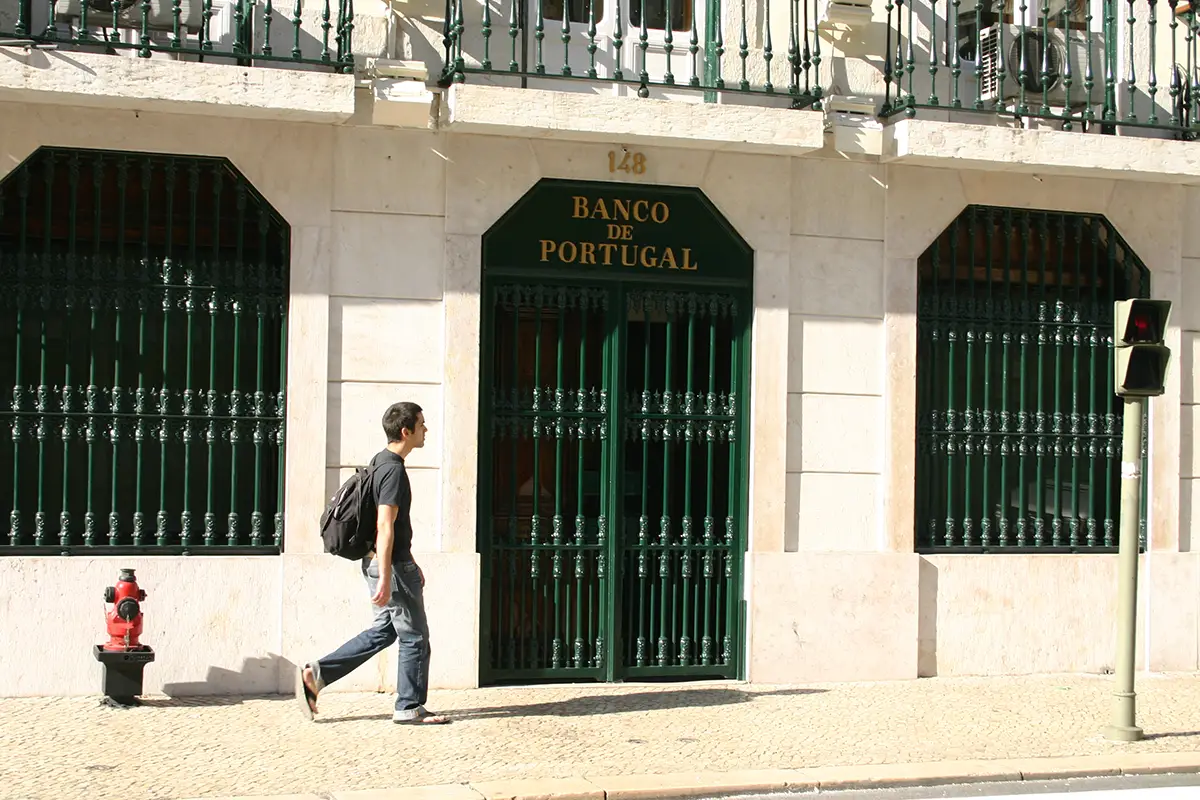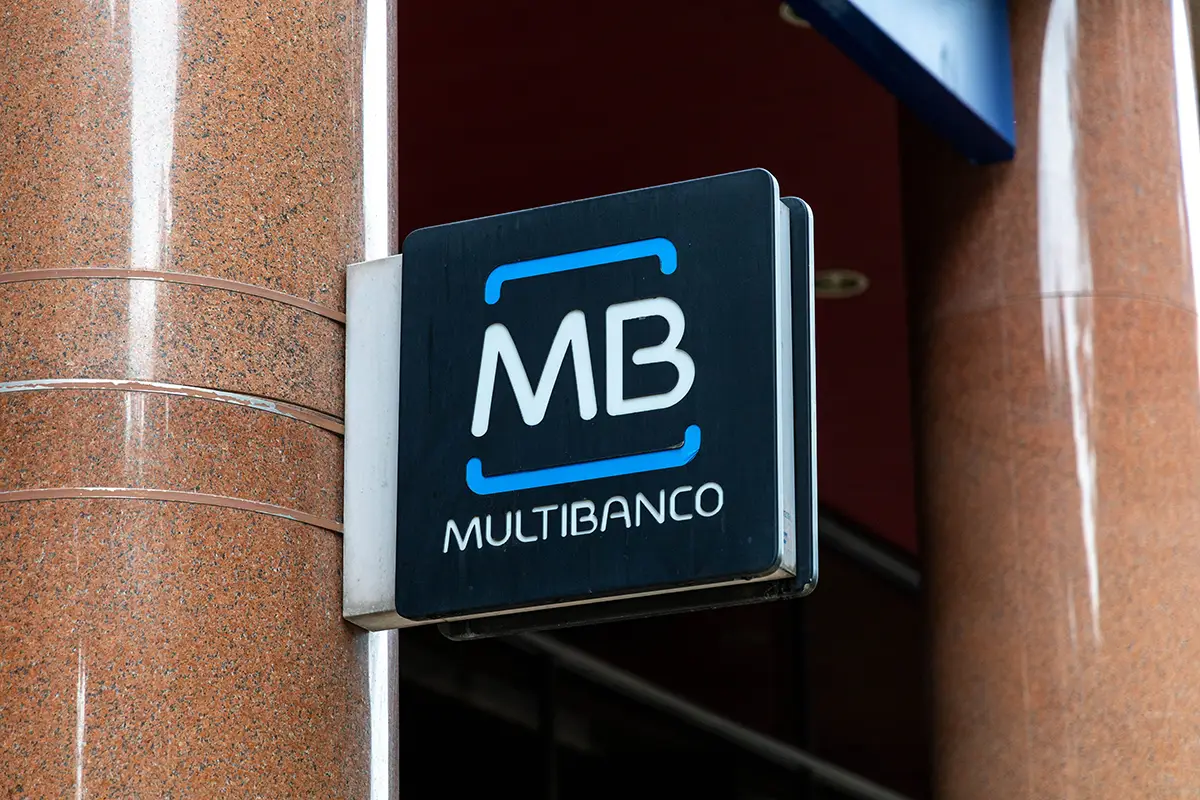
When starting your life in Portugal, one of the first hurdles to overcome is to open a banking account in Portugal. You might be able to get around without one – a big if, and honestly not worth the trouble - and rely only on any you may already have, but having your own account in a Portuguese bank will facilitate almost every aspect of your time and life in Portugal.
The Banking System in Portugal
With over 150 banks in Portugal, from private retail banks, public and cooperative banks, international banks, and even digital online banks, there is no shortage of choice when it comes to selecting what works best for you.
Portugal’s state-of-the-art Multibanco system interconnects almost all the banks authorised to operate in Portugal, making life decidedly easier for all residents living in Portugal, including expats. The Multibanco system is so deeply integrated and woven through Portuguese society, that it is possible to directly pay governmental taxes, or even pay your monthly transportation card on Multibanco ATMs.
Multibanco ATMs are the default way of referring to an ATM in Portugal, though other companies like Euronet also operate their own ATMs in Portugal. However, you will be hard pressed to find any Portuguese person who would not prefer to use an Multibanco ATM. They usually can be found within walking distance, especially in the cities of Lisbon and Porto.
Banks in Portugal are regulated and monitored by the Bank of Portugal and the European Central bank.

Traditional Portuguese Banks
There are several local Portuguese banks, some of which have become true pillars of the Portuguese society. The following in this list are the most well-known. Portugal Homes does not endorse any of the following banks, nor is the list in any particular order.
Caixa Geral de Depósitos (CGD)
Caixa Geral de Depósitos (CGD) is one of the most important Portuguese banks and the only one that is fully owned by the Portuguese state. It is one of the oldest operating banks in Portugal, having been founded in Lisbon in 1876. CGD operates in 23 countries across 4 continents and its key areas are customer deposits, loans, mortgages, mutual funds, among many others.
NovoBanco
Founded in 2014, NovoBanco is the newest bank in this list. It rose from the ashes of the after its predecessor Banco Espírito Santo (BES), which went bankrupt, was restructured, and recapitalised by the Bank of Portugal in order to save the good assets. Ever since, NovoBanco has become one of the main banking institutions in Portugal, with much of its operations focused solely on Portugal. NovoBanco has accounts specifically tailored to expats seeking to settle down in Portugal.
Banco Português de Investimento
Banco Português de Investimento (BPI), also known the Portuguese Investment Bank, is a private institution, currently owned by CaixaBank. Though BPI is more so geared toward businesses and investments, it also has a public retail side, and is one of the Portuguese’s most chosen options. It was created in 1981, in Porto, and is often the recipient of several awards by consumer surveys.
Millenium BCP - Banco Comercial Português
Millenium BCP is another traditional Portuguese bank, headquartered in Porto, and one of the largest in Portugal, operating more than 450 branches countrywide, though it also operates in several other countries. Like most other banks, it offers products and services oriented to both public retail, investment, and businesses.
Banco Montepio
Banco Montepio is another staple in the Portuguese banking landscape. Founded in 1844, it is one of the oldest banks in Portugal. This Bank in particular focuses on public retail, services for clients with moderate to medium savings, loans, services to micro, small and medium businesses, and service-driven companies.
International Banks
Besides traditional Portuguese banks, expats can also choose other banks they may already be familiar with, as plenty of international banks have a well-established a presence in Portugal. Portugal Homes does not endorse any of the following banks, nor is the list in any particular order.
Abanca
Abanca is a Spanish-based bank fully operating in Portugal, besides multiple other countries, including the United Kingdom, and the United States. It offers many banking services for individuals and businesses, including checking and savings accounts, loans – for purchasing a vehicle, Real Estate or personal credit, insurance products and several investment options across many sectors.
Deutsche Bank
Deutsche Bank has been operating in Portugal since 1978, though it no longer has public retail services. Regardless, the Bank’s specialty in investment and corporate banking, as well as wealth and asset management, makes it a bank to consider if you have a business you would like to establish in Portugal.
BNP Paribas
French-based BNP Paribas has been operating in Portugal since 1985, and it has since been a bank of reference for the Portuguese market. Its main focuses are commercial and personal banking, and investment and corporate banking.
BBVA Bank
The Spanish BBVA is another international bank option. Based in Madrid and Bilbao, BBVA has been operating in Portugal since 1991 and is one of the largest banks in the world. In Portugal, the bank offers multiple banking services, including public retails, such as checking and savings accounts, personal credits, insurance products, as well as business-geared services, like business accounts, financing & loans, business banking cards, and many others.
Santander Bank
British expats may well already be familiar with the Spanish Santander Bank, since it has a strong presence in the United Kingdom. Santander Bank is also well-established in Portugal and one of the most chosen options in Portugal by both individuals and businesses alike. It has multiple accounts to choose from, as well as several other banking services, including, but not limited to credit cards, investment products, and accounts handled in foreign currencies.
Digital Banks
Keeping up with current trends, many Banks have launched their own digital services, available through homebanking in Portugal. Other international companies have established their own digital banks in Portugal. You can find some of the most common options in this list. Portugal Homes does not endorse any of the following banks, nor is the list in any particular order.
ActivoBank
ActivoBank is part of the Millennium BCP bank, though it acts as its own entity. It is a 100% digital bank, with all features accessible online. However, it does have some physical branches located throughout the country, to help people create accounts, to print cards on the hour, and to provide assistance whenever necessary.
Banco CTT
Banco CTT is a bank owned by the Portuguese Post Office Service, and it is specifically geared toward public retail services. This bank provides multiple options for everyday checking and savings accounts. They also offer insurance, credit cards, and other investment-driven financial products.
Moey
Moey Is a digital bank by itself, owned by the Crédito Agrícola, another Portuguese bank. Moey stands out due to its simplistic approach to digital banking, offering a 100% online solution, with no maintenance deposit fees.
Revolut
Revolut may be interesting choice for many expats, due to its perks and features, especially when it comes to foreign currency exchange rates. In 2021, the European Central Bank granted Revolut a banking licence, allowing the company to fully operate as a digital bank in Portugal. It also offers debit and credit cards, personal loans services, stock trading and cryptocurrency services.
N26
N26 is another digital bank solution, available through an application you can download onto your smartphone. It also a worthwhile option to consider due to its lack of fees and commissions for currency exchange. It has a licence to operate in Portugal, and offers other types of services, including simple checking accounts, savings accounts, and cryptocurrency services.
Banking Services Available in Portuguese Banks
Banks in Portugal will provide the usual public retail services you may already be accustomed to. However, most will also provide private and personalized services to expats & investors, including exclusive access to investment opportunities – with subscriptions to private equity, venture capital, and hedge funds often being an option. Some of the most common and most basic services you can expect to be able to access are:
- Make and receive local and international transfers;
- Cash withdrawals;
- Issuance of Debit or Credit Cards;
- Open a Savings account;
- Homebanking services - including access to a digital application;
- Obtain financial insurance;
- Contract a loan or a mortgage;
- Open an account with foreign currency other than the Euro;
- Banking services specifically for businesses;
- Safety boxes in local branches;
- Currency exchange;
- Among many others.
Most of the Banks in Portugal have an established a full online and digital presence, enabling you to fully operate and manage your transactions from the comfort of your home through a mobile banking.

How to Open a Bank Account in Portugal as an Expat
Opening an account in most banks in Portugal is typically a process that requires you to be in person at a local branch of your bank of choice. Most bank branches are open Monday to Friday, from 8:30am to 3pm. Some might open on Saturdays on a more limited timeframe.
Some digital banks, like ActivoBank and Banco CTT, will let you start the process online but will require some form of authentication or a visit to their physical branches. Not all digital banks have physical locations in Portugal, but both listed examples do.
In order to open a bank account in Portugal, you will need to carry some documentation with you, including a valid form of ID, e.g.: a passport, proof of address, and the Portuguese Taxpayer Number (NIF). Some banks may allow to temporarily open without an address at first, but it will need to be provided sooner or later. If you provide all the documentation, you should be able to open the account in the same day. Unless the bank can print the card in the moment, you can either pick it up at the branch or expect to receive your debit or credit card in the following days at your address.
Expats seeking to relocate to Portugal, whether already having a property or not, should know that it is virtually impossible to buy Real Estate without holding a bank account. Portugal Homes facilitates the process of opening a bank account in Portugal for you, even if you are not interested in acquiring property, through the Tax Representation services provided by our After Sales team. By empowering us with power of attorney, our specialised staff endeavours on an expedited journey to settle your fiscal and status in Portugal – which includes opening a bank account, obtaining a Portuguese Taxpayer Number, and declaring your yearly tax.

Payment Methods in Portugal
Cash
It is always a good idea to carry some cash around with you in Portugal – a €10 or €20 bill ought to be enough for everyday life. You might be asking why. Despite having one of the world’s most advanced banking systems, there are still some shops in Portugal – whether it is cafés, supermarkets, or any other kind of retail service – that do not accept a Banking Card as a payment method. This mostly occurs in smaller, individual shops you might randomly find on the street because of commissions and fees the banking institutions charge for the use of their payment terminals. The reverse might happen as well, though far more unlikely, and probably only in the largest cities of Lisbon and Porto. In a recent trend, some shops have started to decline cash as a payment method, and only accept Cards.
Debit Card
Debit Cards are by far the most popular choice among Portuguese people, which are issued by their bank of choice. When opening a bank account in Portugal, you will be typically given a Visa or MasterCard Debit Card, depending on what type of account you choose to open.
Most Portuguese Debit Cards are equipped with both PIN and Contactless technologies. Contactless, as a payment method, is limited to amounts up to €50. If you wish to make a purchase of a higher amount, you will have to input the card in the terminal and punch in your PIN.
Credit Card
Credit Cards are also an option, though not nearly as used as Debit Cards in Portugal. However, they remain an option, and most Banks will provide them either at request – though this may require an analysis of the person’s financial background, or in a bundle of financial services. When researching Portuguese banks, it is always a good idea to research the type of financial products on offer and see how it can best benefit you. Also, like Debit Cards, Credit Cards are equipped with PIN and Contactless technologies, with the same restrictions.
Multibanco Card
While most Portuguese shops will accept common payment networks, like Visa or MasterCard, some may not actually accept them on rare occasions. This may happen because Portugal has its own payment network – Multibanco. Almost every bank fully operating in Portugal will issue a card that dually accesses either the Visa or the MasterCard network, and the Multibanco network. Multibanco Cards can also be either Debit or Credit.
The Multibanco and MBWay Systems
The Multibanco (MB) System makes banking in Portugal an effortless endeavour. This Portuguese state-of-the-art system connects all major banks in Portugal in a single network. It is so widely used by the Portuguese that it is the default way of referring to an ATM, though other companies do operate their ATMs in Portugal.
The Multibanco System has more than 11,000 ATMs spread throughout the country and there is usually one around the corner in every major street in Lisbon and Porto. They are a bit scarcer to find in the countryside, but even so, Multibanco ATMs are extremely commonplace, and can even often be found inside supermarkets.

Besides standard operations you can expect from an ATM, like being able to withdraw cash, Multibanco ATMs also let you pay governmental taxes, charge your monthly transportation card, and make national and international banking transfers. Since most Portuguese banking cards are dually able to access the Multibanco network and either the Visa or MasterCard networks, you can insert your card with no issue. Cash withdrawals have a limit of €200, up to €400 per day.
SIBS, the company in charge of Multibanco, also has a digital form of Multibanco, called MBWay, a downloadable application that lets you do standard Multibanco operations through your phone. For instance, if you do not have your card at hand, you can generate a code in the application, go to the nearest MB ATM, and withdraw cash from your account, without needing to use the card itself. You can also effortlessly and immediately wire money from one account to another without having to wait for the standard waiting period time when doing it directly an ATM. Other operations included are also the creation of virtual credit cards, adding another layer of security to your already existing card when making online purchases.
Excellent News Regarding Homebanking Transfers in Portugal
For the longest time, the only way to 100% guarantee the money you were transferring went to the correct person, in Portugal, was by doing it directly at a Multibanco ATM, since the name of the account’s holder appears directly on the screen.
In an effort to combat fraud and mistakes of sending money to the wrong people, the Bank of Portugal issued, in May 2024, a new directive to all banks operating in Portugal. Going forward, the same functionality – the name of the account holder – will now appear whenever someone tries to transfer directly through the bank’s online application on the smartphone, fully eliminating the need to physically go to a Multibanco ATM to make the transfer. The same functionality will also apply to direct debits, ensuring that consumers have full knowledge they are contracting the debit with the right entity.
Another directive was also issued, informing banks that they have to make available, through their home/mobile banking applications, the option to transfer money between Portuguese accounts with just the use of a phone number. In essence, what is already possible with MBWay – which means consumers will now have more options and rely on fewer digital applications.
Modern Banking in Portugal, Modern Living
Portugal continues to lead the vanguard when it comes to banking solutions and services, with its growing list of ways that it facilitates the lives of Portuguese residents and citizens. Being able to do wire transfers securely and from the comfort of your own house, knowing the money is going to the correct account is only of the many benefits from banking in Portugal, and with so varied, multiple options to choose from, opening a bank account in Portugal as an expat will be effortless.
This echoes throughout the rest of every other aspect of living in Portugal and expats moving to Portugal can expect to find a modern country, with updated infrastructure, reliable public transportation, excellent healthcare services, and some of the best schools and universities in Europe.
All this, plus the country’s lower cost of living, sunnier weather and fantastic beaches, and the Portuguese’s high levels of English proficiency, build up the foundation for an expat to lead a relaxing, tranquil life in Portugal.







